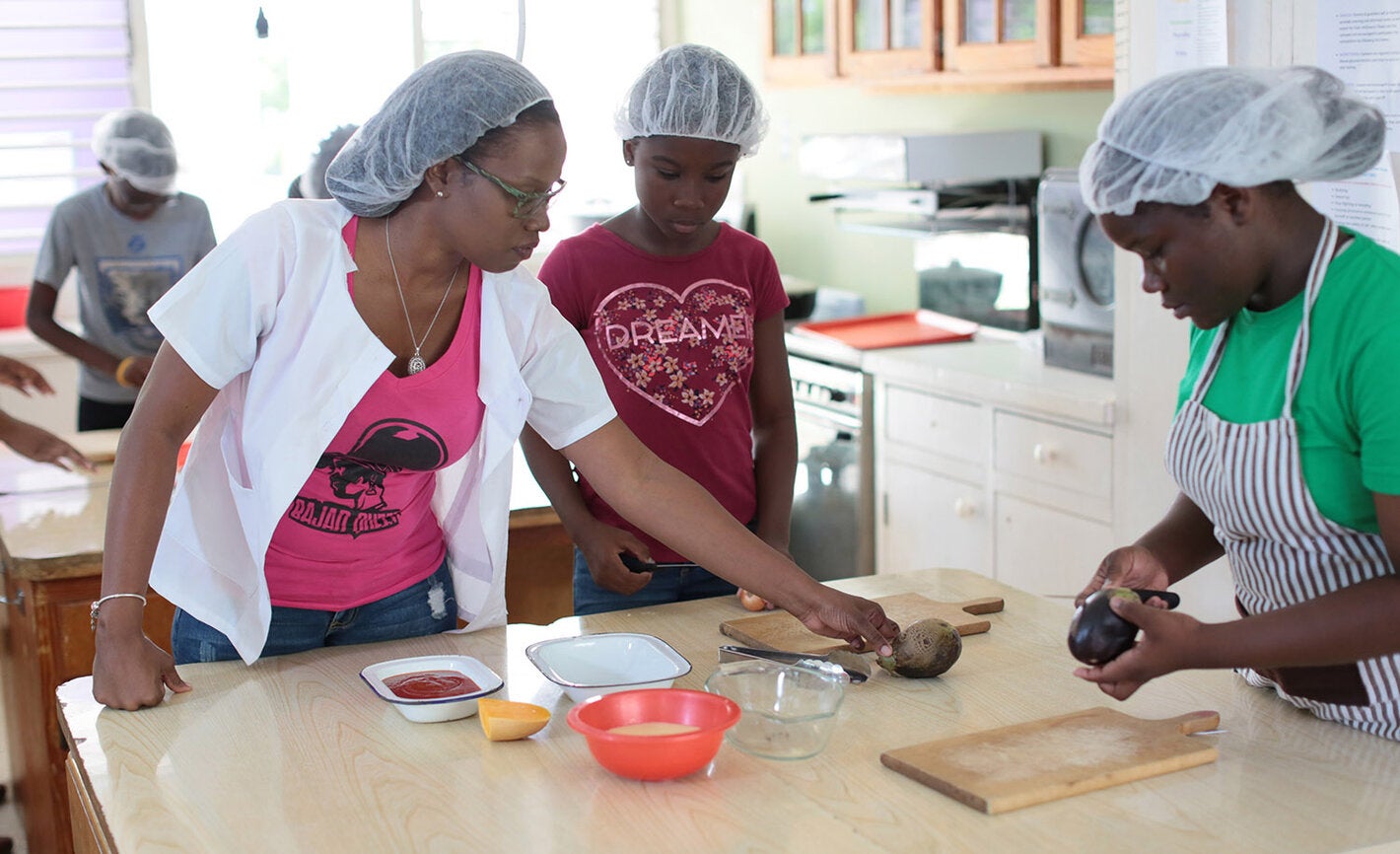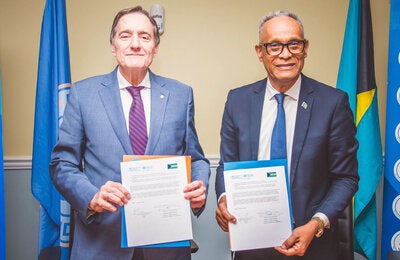
Most of Barbados’ children may be out of the physical classroom in keeping with the COVID-19 pandemic health and safety protocols; but their health and nutritional needs continue to receive the utmost attention.
On Wednesday 24 June 2020, PAHO/WHO hosted a webinar enabling the consultative process for the development of the National School Nutrition Policy to commence.
This webinar is the first in a series of three consultations being held to develop a multi-sectoral National School Nutrition Policy. The forum brought together representatives of the Ministry of Health and Wellness; Ministry of Education, Technology and Vocational Training; Child Care Board; Private Sector; and Non-Governmental Organizations.
Dr. Yitades Gebre, PAHO/WHO Representative for Barbados and the Eastern Caribbean Countries, commended the government for recognizing that childhood obesity in Barbados needed to be addressed. “Recognizing that childhood obesity was becoming more prevalent, Barbados made a strategic move and developed a Childhood Obesity Plan of Action in 2015. They were amongst the first in the Caribbean to introduce a 10% ad valorem tax on sugar sweetened beverages.
“Post-implementation studies have shown that the increased taxes were effective in reducing sales of SSBs (sugar sweetened beverages) and increasing sales of non-SSBs at major grocery stores.
Dr. Gebre challenged government to go a step further in tackling the problem. “While this (the increased taxes) is highly commendable, we are encouraging you to go further and increase the taxation to 20% to maximize the potential benefits.”
Chief Medical Officer (CMO), Dr. Kenneth George, acknowledged government’s recognition of proven recommendations.
“Across all of the various national, regional and global recommendations there are a core set of evidence-based policies recommended to tackle childhood obesity. These policies include:
- The promotion of exclusive breastfeeding including the Baby-Friendly Hospital Initiative
- Making it harder to consume excessive amounts of sugar sweetened beverages including through an aggressive national pricing policy
- Helping persons know what they are consuming by having high visibility labelling for pre-packaged foods
- Continued public education of both adults and children so as to improve nutrition literacy
- In acknowledgement that the children spend a significant part of their time at school and therefore need a healthy school environment.”
The CMO added: “The school environment provides an excellent opportunity for meaningful interventions and policies to create behaviour change. To this end we hope to add to the significant work being done by developing a National School Nutrition Policy which aims to make the school environment a healthier environment”.
Chief Education Officer in the Ministry of Education, Technology and Vocational Training, Ms. Joy Adamson, said the Ministry is pleased to be involved in the partnership as Ministry officials continue to be “very concerned about our children’s dietary habits and even more disturbed about the number of school aged students who encounter Non-Communicable Diseases NCDs in Barbados”.
She added: “It is anticipated that the National School Nutrition Policy will represent efforts to utilize not only schools but all educational institutions as sites for improving the nutritional status of our children from nursery to tertiary.”



